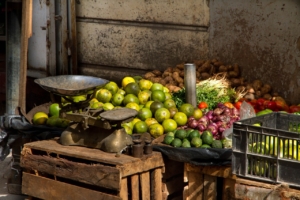Illicit Trade in Kenya: 5 Things to Know
 Kenya’s 48.5 million people have chronically suffered poverty because of rampant unemployment, crime and drought. Among other factors, illicit trade in Kenya has contributed to these stressors in a damaging way. Here are five things to know about the illicit trade in Kenya.
Kenya’s 48.5 million people have chronically suffered poverty because of rampant unemployment, crime and drought. Among other factors, illicit trade in Kenya has contributed to these stressors in a damaging way. Here are five things to know about the illicit trade in Kenya.
5 Things to Know About Illicit Trade in Kenya
- Illicit trade in Kenya robs its economy of $900 million every year. Kenya’s largest economic sectors like food and construction frequently fall victim to piracy. Criminals steal from these industries and sell their products illegally on the black market; this causes Kenyan companies and the government to lose money they could have made conducting legal business. Firms in Kenya reportedly lose 37.69% to 42.14% of their profits to illegal trade.
- Illicit trade contributes to unemployment as well. Unlawful practices like piracy and the production of counterfeit products caused the loss of 7,484 jobs between 2016 and 2018. The rise of COVID-19 has already threatened the livelihood of Kenya’s 15 million informally employed laborers as people grow less comfortable doing businesses with individuals; illicit trade has only harmed Kenya’s job market further. Kenya’s unemployment has remained fairly stable over the last couple of decades, ranging from 2.6% to 2.9%. However, data has yet to be collected on unemployment in 2020 and across the globe. Unemployment rates have shot well beyond established averages as a result of the COVID-19 pandemic.
- Inattention to the issue may be its biggest propagator. Only 30% of the companies experiencing theft by illicit trade are even aware of the crimes against them. Due to the disproportionately high number of foreign banks and poor economic regulation in Kenya, discovering illegal trade proves difficult. The Financial Sector Deepening (FSD) Kenya conducted a study from 2015-2016 to look into complaints about Kenyan banks issuing unwarranted charges. The FSD discovered that many banks charged its customers odd quantities in an opaque manner and the surveyors had great difficulty obtaining any further information on the subject due to the industry’s opacity.
- Illegal trade is a global issue and Kenya has joined in the fight against it. The international trade of products like cocaine and tobacco has sparked movements across the globe. In 2020, Kenya joined The Protocol to Eliminate Illicit Trade in Tobacco Products, a treaty signed by 59 countries to universally end the illegal trade of tobacco. The Protocol will lower tobacco smuggling by an estimated 60% and Kenya has already seen success in combating the illicit tobacco market. “The Kenyan Revenue Authority estimates that the illicit cigarette trade market share declined from 15% in 2003 to 5% in 2016, a direct result of the implemented measures [taken],” reports Michal Stoklosa of the Tobacco Atlas.
- Kenya’s government has decided to tackle this problem head-on. Kenya’s Anti-Counterfeit Authority, established in 2008 as part of the Anti-Counterfeit Act, has declared its mission to end illicit trade in Kenya. The organization has created jobs, spread awareness of counterfeit activity and its harmful effects, and marked World Anti-Counterfeit Day this year by holding a ceremony and destroying $270,000 of counterfeit goods.
Kenya’s situation may appear difficult, particularly with the added stress of COVID-19, but its government and hardworking people have taken important steps to end illicit trade and its detrimental effects on the Kenyan economy.
– Will Sikich
Photo: Needpix
